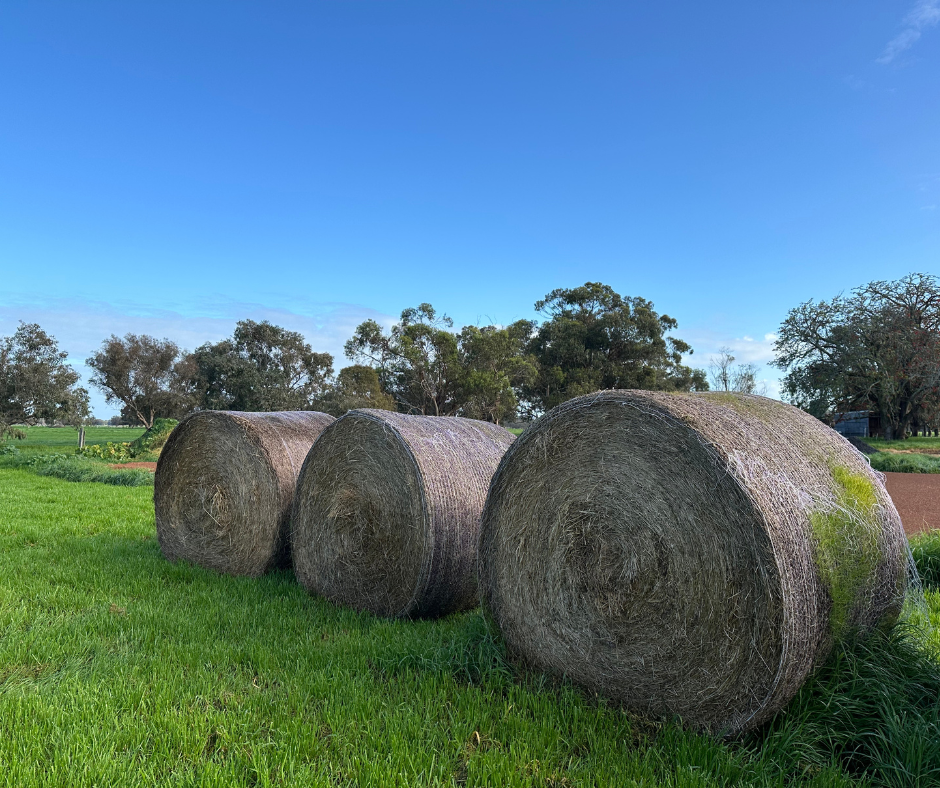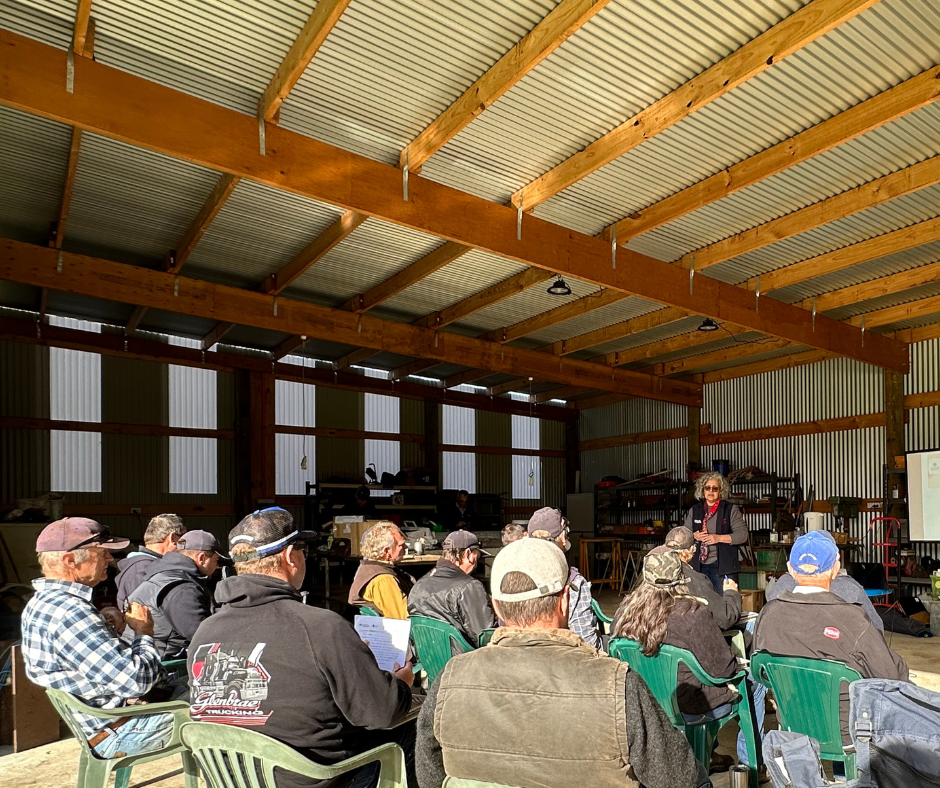

In the wake of the 2023/24 record-breaking dry season and resulting drastic feed shortages, as spring approaches, farmers are eager to ensure every bale they grow or buy in, counts for the coming summer.
A series of 11 Better Hay & Silage workshops being run throughout the region by Western Beef Association, with funding via the Australian Government’s Future Drought Fund and supported by our Sustainable Agriculture Facilitators (SAFs) is helping to meet that need.
The workshops are jam-packed with practical tips and opportunity for discussion so no one leaves without learning something they can take back to their farm and put into practice.
Creating efficiencies by making the most of low-hanging fruit is a theme throughout with topics covering aspects like increasing the speed of wilting for higher quality hay and silage which in turn provides better livestock growth potential and makes it easier to keep weight on them over summer.
During the workshop’s introductory session by veterinarian, researcher and Western Beef Executive Officer Jeisane Accioly delved into the critical importance of lab testing feed for detailed insights on its quality – particularly energy and protein levels – to better inform decision-making.
“There can be a huge variation in feed quality and if you don’t test, you don’t know,” she said.
For instance when it comes to moisture content, there is a big difference between one kilogram of watermelon and one kilogram of Weetbix!
“Even with the best quality autumn hay, in WA it is very common for it to be lacking in protein,” she said.
“Not testing for feed quality creates a risk of underfeeding.”
Jeisane went on to outline the varying nutritional requirements of livestock according to breed and life cycle and, once tested, how to calculate appropriate feed levels to accurately meet the animal’s needs for optimal condition and productivity.
Additional sessions during the day-long workshop covered strategies for improving the quality of feed produced on farm.
Learnings will be supported later in the year with additional sessions on using Rumen8 software for feed budgeting.
If you missed this one, there is still time to book in for the Manjimup event happening on Thursday, 22 August.
For more information on building drought resilience, visit this section of our Sustainable Agriculture library.
